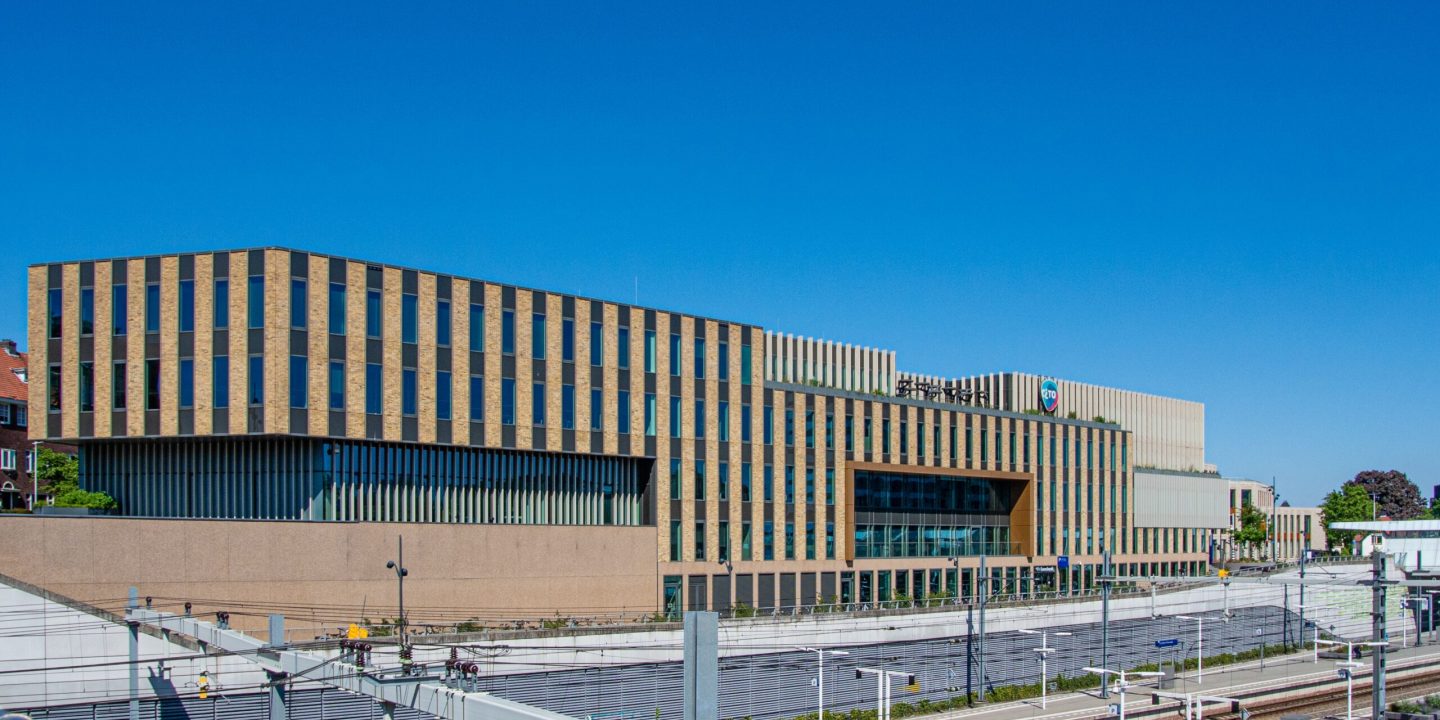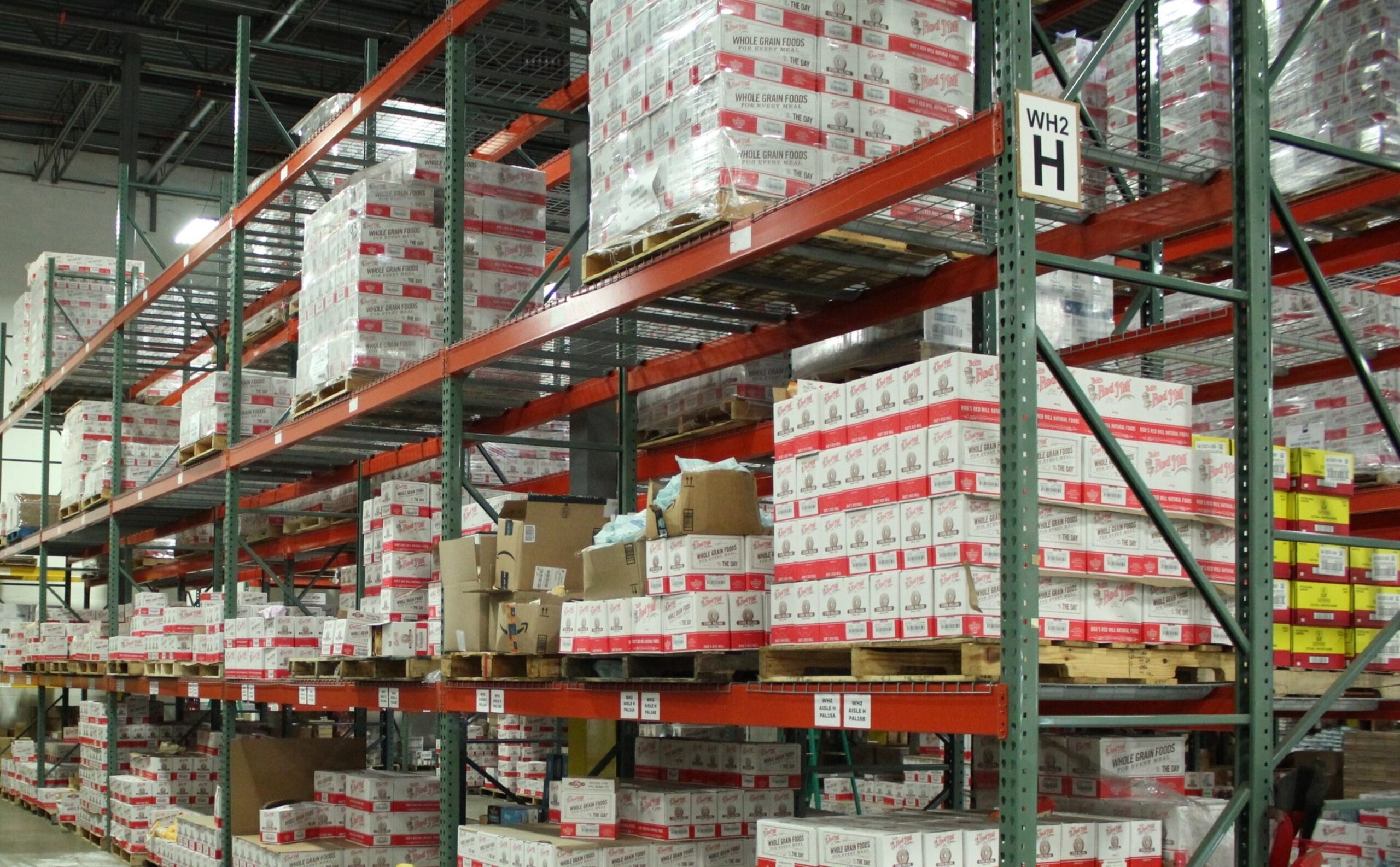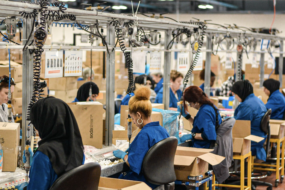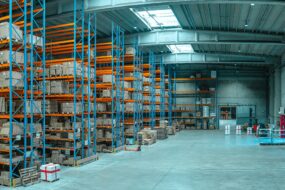Contents

The logistics industry has undergone a significant transformation over the years, with businesses looking for cost-effective and efficient ways to manage their supply chains.
In my 10 years of experience of working with 3PLs, one common misconception I hear working with clients looking for 3PL is that the term 3PL means 1 thing and 1 thing only. Not true.
3PLs offer a variety of services. They don’t act solely as a transportation carrier or e-commerce fulfillment provider.
In this blog post, we’ll explore the definition of 3PL, the different types right for your business, and provide insights on how to choose the right 3PL provider for your business.
Definition of 3PL and Its Importance in Logistics
In simple terms, 3PL is the outsourcing of logistics and supply chain management to a third-party provider. This involves the management of transportation, warehousing, and distribution of goods, and may also include other value-added services such as packaging, labeling, consulting, and customs brokerage. The importance of 3PL lies in the fact that it allows businesses to focus on their core competencies while leaving logistics, or the coordination and movement of goods and information, to the experts.
The differences between 1PL, 2PL, and 3PL
There are several levels of logistics providers, each with its own unique set of responsibilities. These include:
- 1PL (First-Party Logistics): In this model, the company manages its own logistics and supply chain operations. Think about a tomato grower that grows the tomatoes and manages the shipment to their own store.
Another example that I have personally worked with in the past is that Walmart handles parts of their entire supply chain: setting up transportation, their own drivers move the product, and it’s delivered to their own store. An easy way to tell if a logistics company is 1PL is if they own the goods they are shipping. - 2PL (Second-Party Logistics): In this model, a company outsources one or more logistics functions to a second-party provider. This may include transportation, warehousing, or distribution.
An example of a 2PL would be a trucking company hauling goods from 1 place to another. The trucking company in this case would not own the freight at any point and the manufacturer or entity requesting the shipment of the goods between 2 locations would facilitate all of the pick-up, drop-off, and set-up details. - 3PL (Third-Party Logistics): In this model, the company outsources all logistics and supply chain management functions to a third-party provider. This includes transportation, warehousing, distribution, and other value-added services. The difference between a 3PL and 2PL as an example would be if a 3PL takes on any additional responsibility such as 3PL specializing in warehouse management.
In this example, a 2PL of warehouse services would become a 3PL when services expand beyond offering just outsourced labor in forklift drivers to move product. Additional services that would make this example a 3PL is managing inventory, dictating to forklift drivers where to pick and load trucks, and optimizing a warehouse. In reality, almost all 2PLs in a given example offer some form of expanded services beyond a limited scope, which makes a majority of outsourced logistics providers to be 3PLs.
Benefits of Using a 3PL Provider for Logistics Management
The benefits of using a 3PL provider for logistics management are many, and include:
- Cost savings: Outsourcing logistics to a 3PL provider can result in cost savings for businesses as they are optimized for scale, where as a 1PL takes on the burden of additional cost from having to pay a premium for low purchase quantities in the form of storage, trailers, or driver.
- Access to expertise: 3PL providers have extensive experience and knowledge of the logistics industry, which can be leveraged to optimize supply chain operations.
- Scalability: 3PL providers can scale their operations up or down based on the needs of their clients, allowing businesses to be more flexible and responsive to changes in demand. This includes excess driver capacity or storage space for a fulfillment provider
- Risk mitigation: 3PL providers can help mitigate risks associated with supply chain management, such as aging inventory, experts in hauling different types of freight, and managing volatile labor schedules.
What are the Different Types of 3PL Providers?
Third-Party Logistics (3PL) providers offer a wide range of services. Here are some of the different types of 3PLs:
- Transportation-based 3PLs: 3PLs can specialize in transportation services, including freight forwarding, carrier management, and shipment tracking.
- 3PLs for Freight Brokerage Services: True freight brokers are asset-light and help by coordinating their large network of drivers. An example of a company in this space is Spot Freight.
- Warehouse-based 3PLs: 3PLs that offer warehousing services such as storage, inventory management, and order fulfillment. Depending on how big of a product you are needing moved will determine what 3PL you want to find. A company like Outbound Fulfillment, which focuses on small parcel fulfillment can be that provider. Larger full-pallet shipments a company like Buske Logistics can help with shipping. There are many factors as well including if it’s food grade, hazmat, or has lithium batteries.
- Freight Forwarders: Freight forwarders are 3PLs that specialize in arranging and coordinating the transportation of goods for businesses. They work with multiple carriers and modes of transportation to provide the most efficient and cost-effective shipping solutions. Steam Logistics is an excellent example of a Freight Forwarder.
- Customs Brokers: Customs can be an incredibly nuanced area of the supply chain that can have big ramifications for your business if not done right. Customs brokers can act as a 3PL by specializing in helping businesses navigate the complex regulations and paperwork involved in importing and exporting goods across international borders. They can help with everything from customs clearance to compliance with international trade laws.
- Inventory Management Providers: These 3PLs help businesses manage their inventory by providing real-time tracking and reporting of stock levels, as well as implementing automated systems to optimize inventory levels and reduce costs. This one is important. I’ve even seen situations (like during my time at PepsiCo) that required a 3PL to write off $1.2 million in lost inventory from bad inventory management practices. Typically, any warehousing 3PL that you work with should offer this as a part of their services.
- Order Fulfillment Providers: Order fulfillment providers specialize in picking, packing, and shipping products on behalf of businesses. They can manage the entire order fulfillment process, from receiving orders to managing returns and exchanges.
- Value-Added Services Providers: 3PLs offer additional services such as kitting, assembly, packaging, labeling, and other value-added services that can help businesses streamline their operations and reduce costs. Have you seen those cardboard pop-ups at the end of the grocery aisle from Starbucks, Gatorade, or a beer company? More than likely came from a 3PL offering this service if it was outsourced.
- E-commerce Fulfillment Providers: E-commerce fulfillment providers, like my company Outbound Fulfillment, specialize in handling the unique requirements of e-commerce businesses, such as managing online orders, integrating with e-commerce platforms, and providing specialized packaging and shipping options.
- Reverse Logistics Providers: Reverse logistics providers specialize in managing the return of products from customers back to the manufacturer or retailer. They can handle everything from product testing and repair to recycling and disposal. Companies that can handle that include: Outbound Fulfillment, Renewal Logistics, or Boxzooka.
- Financial and Information 3PLs: These 3PLs offer financial and information management services, including freight payment and auditing, transportation management system (TMS) integration, and data analytics. During my time at PepsiCo, we had 3PLs proving transportation and payments considering the large amount of information that needed to be efficiently coordinated, which was not our expertise. A couple of examples of “informational” 3PLs are Cass, which handled driver detention when I worked with trucking carriers, as well as Tusk Logistics that has pre-negotiated parcel rates using a regional network of carriers vs. the higher cost options of going with UPS, FedEx, or USPS.
- Consulting and Customer Adapter 3PLs: 3PLs of consulting services provide logistics consulting and help businesses adapt their supply chain processes to meet changing market conditions and customer demands. In a previous life as an example, I acted as a 3PL consultant where we would design clients supply chains and determine where to place warehousing 3PLs. An example of 3Pl consulting include Riveron which offers traditional supply chain consulting or Carton that provides consulting for packaging procurement
- Dedicated Contract Carriage Providers: These 3PLs offer dedicated transportation services to a single client, providing a fleet of vehicles and drivers dedicated to meeting that client’s transportation needs. An example I’ve managed in the past is a shuttle carrier moving corrugate and bottles from a vendor to a manufacturing plant. One example I have worked with in the past is Shamrock Cartage
- Asset-based 3PLs: Other 3PLs can own and operate their own fleet of vehicles and/or warehouse facilities, providing comprehensive transportation and warehousing services to clients.
6 Steps to Choose the Right 3PL Provider
Choosing the right 3PL provider can be a daunting task, but considering a few factors can help you make an informed decision that will benefit your business in the long run. Here are some factors to consider when choosing a 3PL provider:
1. Industry Experience and Expertise
Ensure that the 3PL provider has experience in handling logistics for your industry. Ask for case studies and references from previous clients in your industry.
2. Technology Capabilities
Choose a 3PL provider that has invested in advanced technology to ensure seamless and efficient logistics operations. The provider should have a robust tracking and reporting system to keep you informed of your cargo’s status in real-time or product moving through a warehouse.
3. Service Level Agreements (SLAs)
A reliable 3PL provider should provide clear SLAs that define the services they will offer, delivery times, and quality metrics. Review the SLAs and ensure that they align with your business objectives and requirements.
4. Flexibility and Scalability
Your business needs may change over time, and the 3PL provider should be flexible enough to adapt to these changes. Ensure that the provider can scale up or down their services to accommodate your business’s changing needs, such as seasonality of business where they may need to hire temp labor to assist with the holiday season.
5. Pricing Structure and Transparency
Choose a 3PL provider that provides transparent pricing and does not have hidden fees. The provider should provide a breakdown of all the costs involved in their services to help you make an informed decision.
6. Reputation and Reviews from Previous Clients
Do your due diligence and research the 3PL provider’s reputation in the industry. Check online reviews and ask for references from previous clients.
So before signing a contract with a 3PL provider, ask the following questions:
- What types of logistics services do you offer?
- How do you ensure quality control and timely delivery?
- What industries do you specialize in?
- What technology do you use for tracking and reporting?
- Can you provide references from previous clients?
It’s important to conduct due diligence when selecting a 3PL provider to ensure that you choose a reliable partner that will help you achieve your business objectives.
Learn more about Manufacturing
Logistipedia is where you can learn more about Manufacturing.




